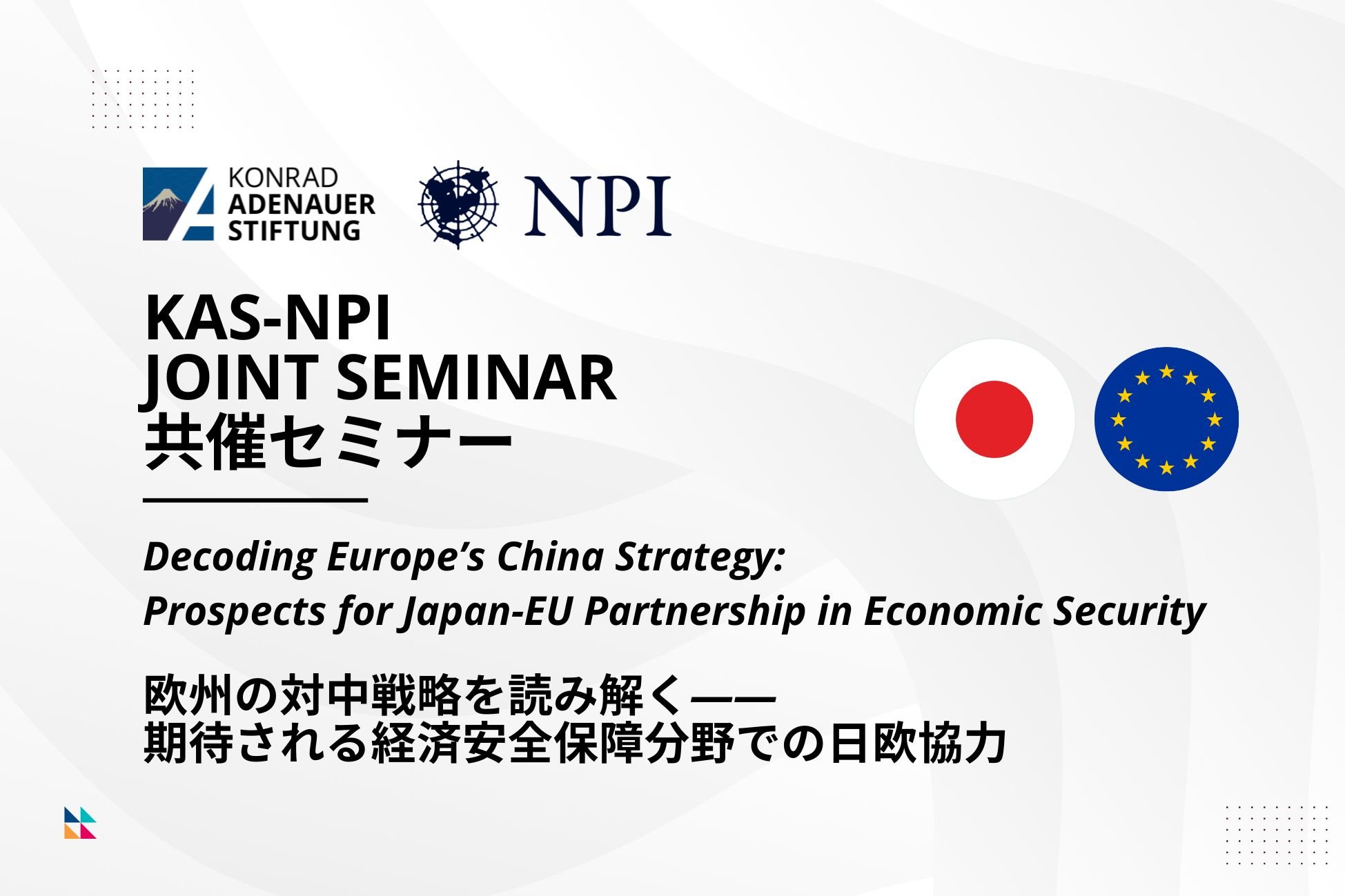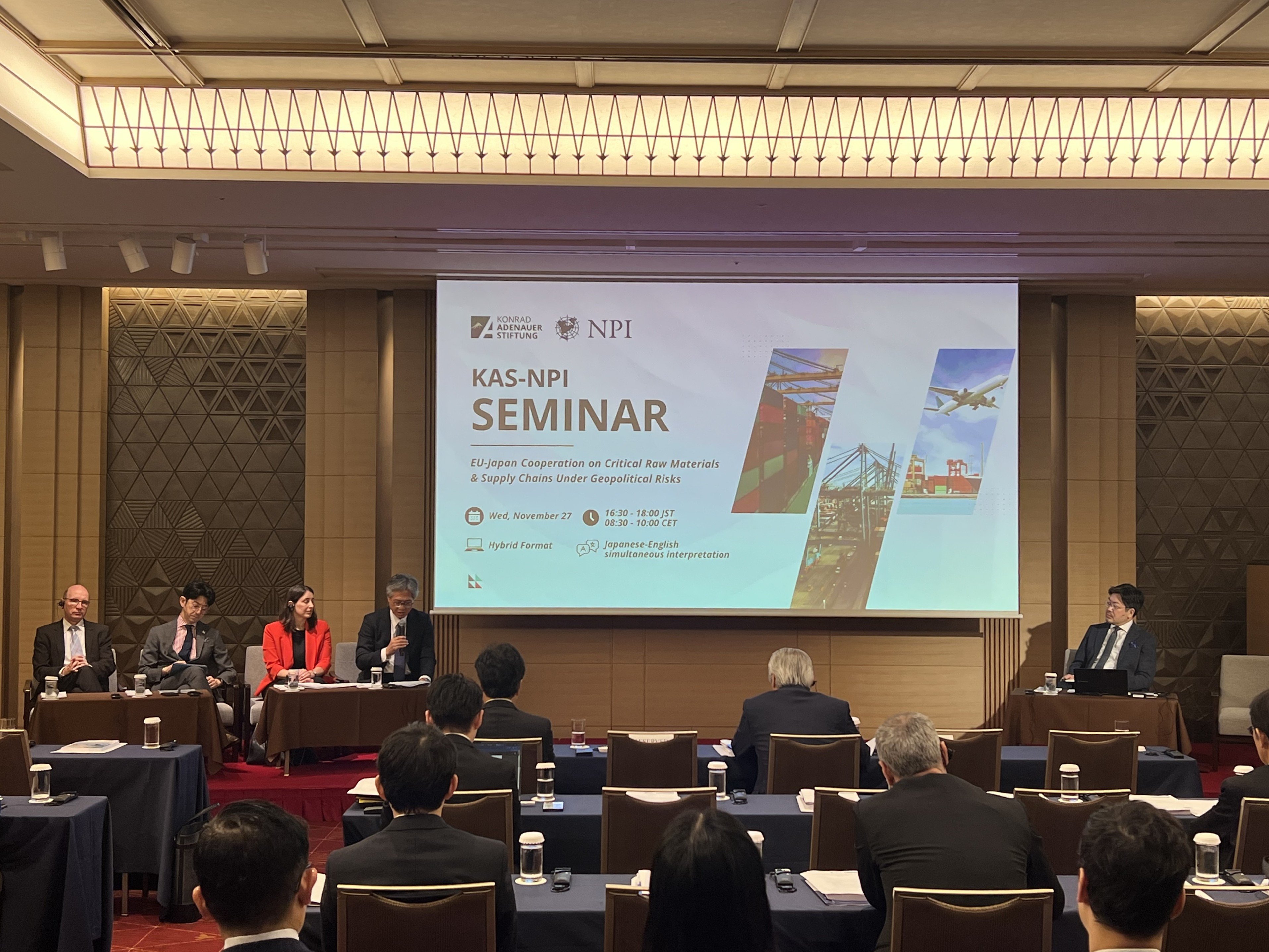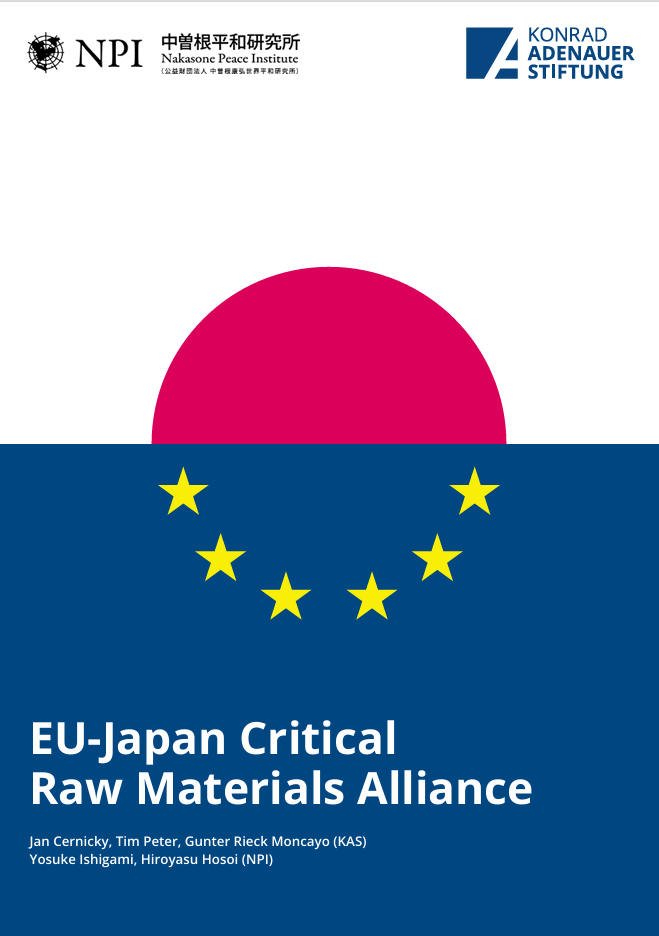2023/03/31
Economic Security Study Group released "FY2022 Report".
Amid growing interest in economic security against the backdrop of high-tech friction between the U.S. and China, the Economic Security Promotion Act was enacted on May 11, 2022. The four pillars of the Act are (1) Resilience of supply chains for key products, (2) Cyber security of essential infrastructure, (3) Support for development of cutting-edge critical technologies, and (4) Non-disclosure of selected patents. The Act has been in force since August 2022. The concept of security is characterized by the extension of the military-based concept of "countering threat to the security of the nation and people's lives" to economic issues such as the security of key commodities (supply chains) and essential infrastructure.
In addition, with the advancement of science and general-purpose technologies such as AI and biotechnology, advanced technologies and their utilization (innovation) have become an important perspective when considering issues of economic security. Therefore, support for their development is stated as one of the pillars of the Act. "Designated critical technologies" in the law are defined as "advanced technologies that, if leaked improperly or are dependent on external parties, could risk impairing the security of the nation and its people." For the proper treatment of technology outcomes, international transfers of advanced technologies may be subject to restrictive measures in addition to current trade control regulations.
In addition, as the distance between science and technology is shrinking, regulations now cover not only the results of private-sector R&D but also research activities at universities and other public research institutes. Scientific research is advanced by free international research exchange, and it is especially significant to have access to the global research frontier for cutting-edge science and technology. In other words, excessive regulation will hinder the development of a country's scientific and technological capabilities, so it is important to strike a balance between "offense" to strengthen a country's competitiveness and "defense" to ensure that economic security is not threatened by technological outflows.
In this study group, members from a variety of disciplines discussed how to "attack" and "defend" this advanced science and technology from the viewpoint of economic security and have examined institutional design and diplomacy. In this section, based on the results of the study from various perspectives by the various study group members, we provide the overall discussion in which the basic ideas are described, followed by a summary of the opinions expressed in the study group as recommendations for universities, businesses, and the government, respectively, as individual discussions. Finally, the report concludes by discussing future measures including foreign policy.










